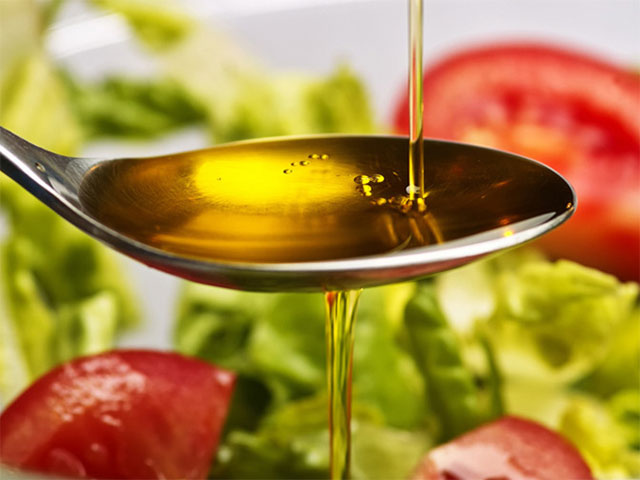What is the cause of fat rancidity? How to avoid or slow down fat rancidity? Next, let’s simply popularize it for everyone:
There may be two reasons for the rancidity of oils: one is the enzymatic hydrolysis process caused by the residues of the oil raw material tissue and the enzymes produced by microorganisms; the other is the pure chemical process, that is, the one that occurs under the action of air, sunlight, and temperature. Series changes, oxygen in the air directly participates in the oxidation reaction of oils, the greater the concentration of oxygen, the faster the oxidation of oils.

1. What is the cause of oil rancidity?
(1) The influence of the oil's own conditions
As far as the main composition of fats and oils is concerned, different types of fatty acids react differently to air. For example, saturated fatty acids are relatively stable; unsaturated fatty acids are not stable and easily react with oxygen in the air. The speed of this reaction differs depending on the length of the carbon chain, the number of double bonds, cis-trans isomerism, and whether it is conjugated. In addition, the non-glyceride contained in the oil has an important influence on the stability of the oil. For example, non-glyceride components such as moisture, enzymes, and colloids in crude oil can accelerate the rancidity of oils, but the vitamin E, phospholipids and certain pigments contained therein mostly have the effect of protecting oils and delaying the process of rancidity. These two situations seem to be contradictory. The unified and reasonable solution is to filter and dehydrate. The grease after such treatment is generally more stable. The stability of highly refined oils is not very good. The reason is that the natural antioxidants contained in the oils are mostly lost during oil refining.
(2) Environmental impact
The temperature is the same as the general chemical reaction, and the oil temperature rises and the oxidation rate accelerates. The same is true for the effect of oxygen partial pressure on the oxidation rate, and it is not obvious when the temperature is too high.
Radiation energy, light is a strong fat oxidation accelerator, it can stimulate free radical reaction and accelerate the oxidation of fat rancid fat. Among them, the effect of ultraviolet light is strong, because the absorption spectrum of most organic compounds is in the ultraviolet region.
The influence of air, whether the air is sufficient or not, has an important influence on the rate of oil rancidity and oxidation.
(3) The influence of free fatty acids
The oxidation rate of free fatty acids is slightly higher than that of the corresponding fatty acids that have become glycerides; a small amount of FFA has no major effect on the oxidation stability of the oil, but when it is more, it will promote the metal in the equipment and packaging to enter the oil, thereby accelerating the oxidation rate.

2. How to avoid or slow down fat rancidity?
(1) It is required that the purity of the grease should be high and the storage conditions should be suitable.
(2) The deterioration of oil is mainly the result of the combined effect of residues of plant tissues and external microorganisms in the oil, under aerobic conditions. Therefore, during the processing, preventing the residue of plant residues and avoiding microbial contamination as much as possible are important measures to prevent the oil from rancidity during storage.
(3) Water is an important condition to prevent enzyme activity and control the growth and reproduction of microorganisms. Therefore, moisture is also an important factor in accelerating the rancidity of fats and oils. my country stipulates that the water content in the oil must not exceed 0.2%.
(4) It should be packed in opaque containers or green glass bottles. Because sunlight and air can promote the oxidation and deterioration of fats, different wavelengths of light have different effects. It is generally believed that ultraviolet, purple and blue light can accelerate the oxidation of fats, while green and brown light will not. Therefore, grease should be placed in an opaque container or a green or brown glass bottle, sealed with a cap, and stored in a dark place, avoiding sunlight and air as much as possible.
(5) Control the temperature in the storage warehouse. Higher temperature can also promote the oxidation of grease, so the temperature of the grease warehouse should be lower. In addition, metal elements such as iron, steel, manganese, chromium, lead, etc. can act as catalysts and accelerate the rancidity of grease. Therefore, mechanical equipment and storage containers should try to avoid these elements during processing.
(6) In order to prevent the rancidity of oils and fats, antioxidants can be added, but the use of antioxidants should be used in accordance with national regulations. The already rancid fats and oils, due to changes in their properties, not only destroy part of the fat-soluble vitamins, but also make the nutritional value of the food even inedible. In addition, rancid oil can also destroy the vitamins in the food in the gastrointestinal tract at the same time. Rancid oil can also produce toxic substances such as aldehydes and ketones, which affect the normal metabolism of the body and endanger the health of the body.
If you want to learn about edible oil processing technology, please feel free to contact us!
Copyright © Henan Zhongxing Grain And Oil Machinery Co.,Ltd. All Rights Reserved. Powered by MetInfo